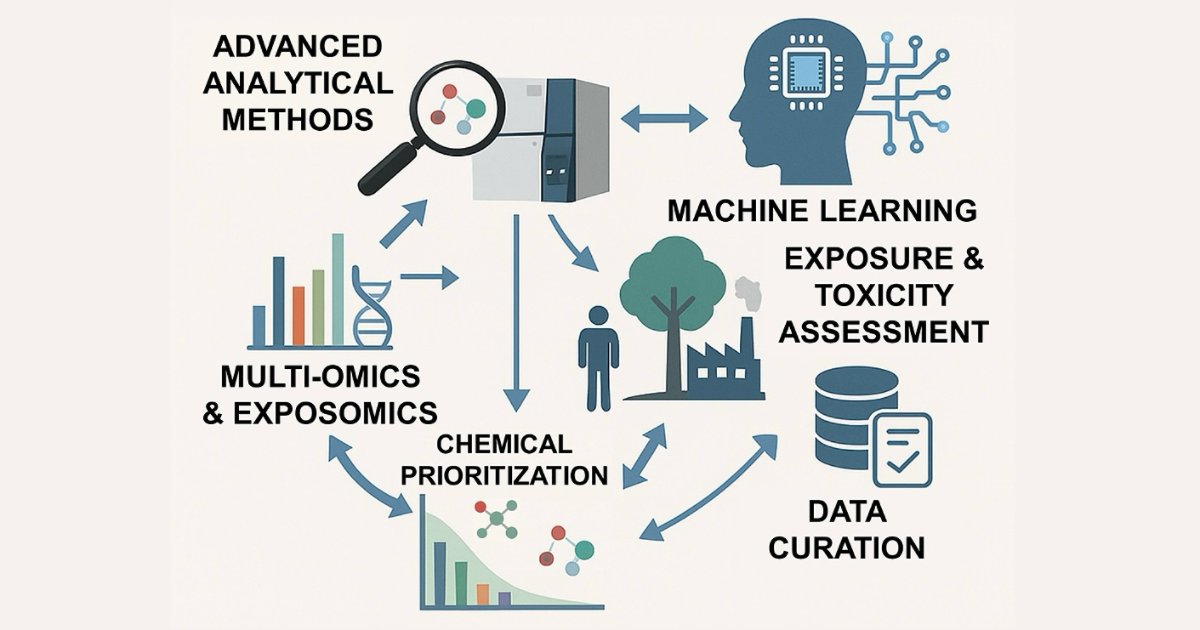From Detection to Risk: Data-Driven Advances in Analytical Chemistry and Toxicology
A special issue of Toxics (ISSN 2305-6304). This special issue belongs to the section "Novel Methods in Toxicology Research".
Deadline for manuscript submissions: closed (30 November 2025) | Viewed by 244

Special Issue Editor
2. Environmental Institute, Koš, Slovakia
Interests: computational mass spectrometry; non-target screening; environmental risk assessment; high-resolution mass spectrometry (HRMS); machine learning in analytical chemistry; chemical mixture toxicity; chemical prioritization; FAIR data in environmental science; digital tools for exposure assessment; wide-scope suspect screening
Special Issues, Collections and Topics in MDPI journals
Special Issue Information
Dear Colleagues,
Rapid advances in analytical technologies and data-driven methods are transforming how we assess environmental and human health risks. This Special Issue, From Detection to Risk: Data-Driven Advances in Analytical Chemistry and Toxicology, aims to bridge the gap between identifying chemical contaminants and understanding their real-world impacts. It focuses on recent advances that move beyond traditional monitoring, leveraging advanced analytical methods, computational modelling, machine learning, and FAIR data principles to support integrated and predictive frameworks for exposure and toxicity assessment.
This Special Issue will include contributions on the following:
- Advanced analytical methods and chemical identification strategies;
- Machine learning applications in analytical chemistry and toxicology;
- Integration of multi-omics and exposomics data in environmental risk assessment;
- Chemical prioritization methods and exposure modelling;
- Mixture toxicity and risk-based assessment frameworks;
- Integration of bioassay data and mechanistic toxicology endpoints;
- Data curation, standardization, and metadata enrichment for environmental and toxicological datasets;
- Decision support tools for regulatory science and early warning systems.
I hope this opportunity will inspire original research articles, critical reviews, and methodological papers from the fields of analytical chemistry, environmental science, toxicology, computational modelling, and regulatory science.
Dr. Nikiforos Alygizakis
Guest Editor
Manuscript Submission Information
Manuscripts should be submitted online at www.mdpi.com by registering and logging in to this website. Once you are registered, click here to go to the submission form. Manuscripts can be submitted until the deadline. All submissions that pass pre-check are peer-reviewed. Accepted papers will be published continuously in the journal (as soon as accepted) and will be listed together on the special issue website. Research articles, review articles as well as short communications are invited. For planned papers, a title and short abstract (about 250 words) can be sent to the Editorial Office for assessment.
Submitted manuscripts should not have been published previously, nor be under consideration for publication elsewhere (except conference proceedings papers). All manuscripts are thoroughly refereed through a single-blind peer-review process. A guide for authors and other relevant information for submission of manuscripts is available on the Instructions for Authors page. Toxics is an international peer-reviewed open access monthly journal published by MDPI.
Please visit the Instructions for Authors page before submitting a manuscript. The Article Processing Charge (APC) for publication in this open access journal is 2600 CHF (Swiss Francs). Submitted papers should be well formatted and use good English. Authors may use MDPI's English editing service prior to publication or during author revisions.
Keywords
- analytical chemistry
- computational mass spectrometry
- toxicology
- exposure assessment
- chemical prioritization
- mixture toxicity
- environmental risk assessment
Benefits of Publishing in a Special Issue
- Ease of navigation: Grouping papers by topic helps scholars navigate broad scope journals more efficiently.
- Greater discoverability: Special Issues support the reach and impact of scientific research. Articles in Special Issues are more discoverable and cited more frequently.
- Expansion of research network: Special Issues facilitate connections among authors, fostering scientific collaborations.
- External promotion: Articles in Special Issues are often promoted through the journal's social media, increasing their visibility.
- Reprint: MDPI Books provides the opportunity to republish successful Special Issues in book format, both online and in print.
Further information on MDPI's Special Issue policies can be found here.






